The Fever that Divides Opinions
In the ever-expanding universe of Soulslike games, few titles manage to stand out for their settings’ originality and atmosphere building. WUCHANG: Fallen Feathers arrives with a proposal: transport the player to China at the end of the Ming Dynasty, a turbulent period in real history, immersed in visceral supernatural and mythological elements. Developed by Chinese studio Leenzee Games, the game seeks to offer not only challenging combat but also an immersive experience rooted in Chinese culture and folklore, something still rare within the genre.
With a striking protagonist, a combat system inspired by Sekiro and Bloodborne, and a world that blends history and cosmic horror, WUCHANG: Fallen Feathers surprises us as one of the most ambitious independent projects in recent years.
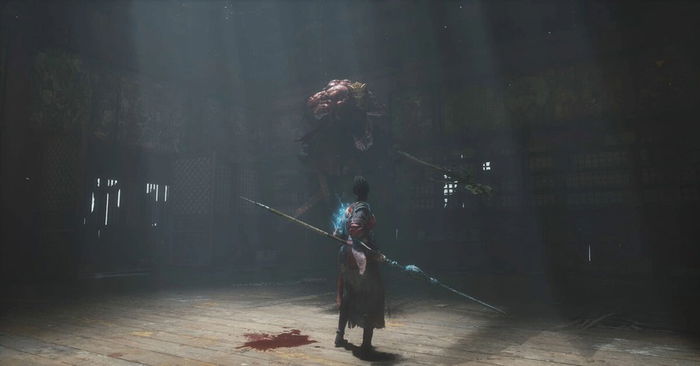
The Setting: A Country in Ruins and Shadows
WUCHANG is set in the last days of the Ming Dynasty, a period of civil war, plagues, social collapse, and external invasions. But instead of a purely historical narrative, the game turns this real-life decline into a fable of dark horror. The world is ravaged by a supernatural disease called "The Scourge of Feathers," which transforms humans into grotesque creatures with black feathers and violent behavior. The protagonist, Wuchang, an amnesiac warrior, wakes up in the middle of this nightmare with signs of the same disease manifesting on her own body.
What starts off as a search for the truth about her identity turns into an existential journey, where the player reveals not only secrets of the world but also of her own self. The setting blends ruined villages, decaying temples, cursed forests, and devastated cities.
The Protagonist and the Narrative
Wuchang is a silent but extremely well-developed character. Her journey is marked by a silent internal pain that echoes through the game's visual choices: her pale face, her eyes that shine underneath the mist, her costumes heavy with history. As we progress, we discover more about her past through fragments of text, visions, and enigmatic interactions with NPCs.
The narrative is told indirectly, in Dark Souls style but with a clearer touch. There's more dialogue than in FromSoftware titles, but still, everything’s shrouded in metaphors, ambiguities, and the use of symbolism from Taoist and Buddhist philosophy. The player is encouraged not only to defeat enemies, but to interpret the world.
It's especially interesting how the feather disease is an allegory for both the loss of humanity and the possibility of spiritual ascension. This duality appears throughout the entire game: what is a curse for some can be enlightenment for others.
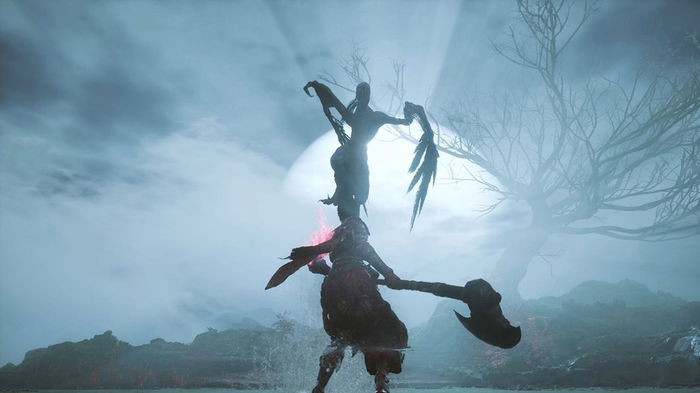
Combat System: Style with Substance
Combat is the heart of any Souls-like game, and in WUCHANG: Fallen Feathers, it's brutal, precise, and stylish. The game adopts a stance system, similar to Sekiro, but also incorporates more hardcore elements, such as in Lies of P and Nioh. The difference here is in the combat styles: Wuchang can switch between different weapons and fighting styles, each with beautiful animations and unique cadences.
There are short swords, halberds, claws, and even bladed fans, each with their own specific tactical advantages. There's also the "demonic feathers" mechanic, special abilities that consume spiritual energy and are activated in moments of danger or the character’s emotional imbalance. These abilities momentarily alter the combat stance, allowing for more aggressive or defensive attacks.
The difficulty is high, but not unfair. The bosses are challenging, with complex attack patterns, and each one represents a manifestation of the corrupted world around them. A giant owl monk, a winged samurai warrior, and a blind courtesan with feathered serpents are just a few examples of the creatures that evoke nightmares and enchantment.
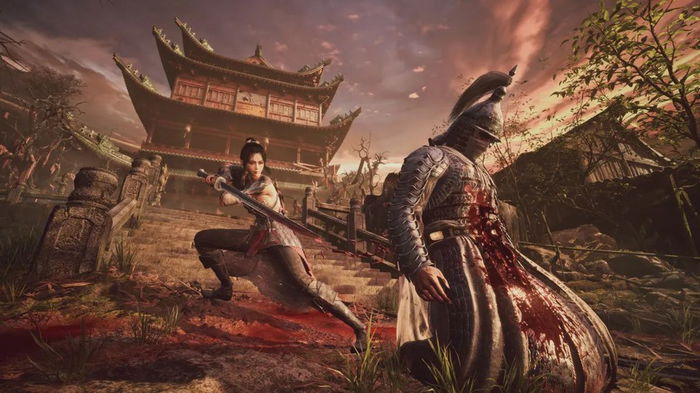
Progression and Customization
The progression system allows players to shape Wuchang according to their style. There are classic attributes such as strength, dexterity, and spirituality, but also specific categories like "inner will" (resilience against the feathers’ corruption) and "spiritual discipline" (the ability to channel the hidden powers without losing sanity).
Equipment is also customizable. Weapons can be infused with Taoist enchantments, special feathers can be attached to change movements, and even armor can be attuned to certain ancestral spirits.
Aesthetics and Sound: A Moving Painting
If there's one element in which WUCHANG: Fallen Feathers shines with unique intensity, it's the art direction. The game is simply stunning. Faded colors in earthly tones, constant fog, meticulous details in temples, inscriptions in ancient Chinese calligraphy, trees that sway as if they’re whispering secrets, everything contributes to a sense of melancholic beauty.
The creatures are visually impactful. Influences range from Chinese folk legends to Lovecraftian nightmares, and the result is a bestiary that rarely repeats itself in design or behavior. Many enemies cause more aesthetic unease than direct fear, but that's part of the game's proposal: to provoke existential discomfort over cheap scares.
The soundtrack is minimalistic and powerful. Traditional Chinese instruments blend with distorted electronic sounds and subtle resonances. The music changes depending on the "spiritual purity" of the area you’re in, which affects not only the ambiance but also the game's progression. The sound design’s also impressive, with effects of footsteps on rotting wood, distant whispers, and the sharp sound of wind rustling through feathers.
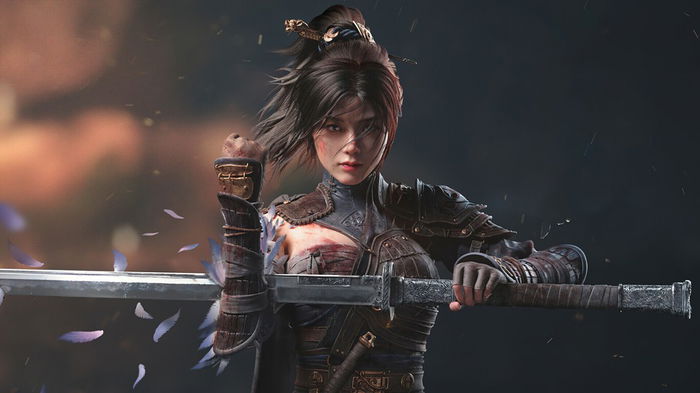
Exploration and an Interconnected World
WUCHANG features a semi-open world in the Metroidvania style. Interconnected areas, hidden secrets, and shortcuts that reward careful exploration. The map’s large and dense, divided between real Chinese provinces and supernatural zones that defy logic. There are abandoned cities that hold buried libraries, living caves that close behind you, and suspended gardens between reality and dreams.
Verticality is used masterfully. Climbing rooftops, descending through root caves, and traversing sunken ruins requires not only attention but intuition. Exploration is rewarded with fragments of memory, relics of forgotten characters, and glimpses into the past.
The presence of NPCs and side quests adds depth to the journey. Many of these characters have tragic backstories, and their missions cross over each other at unexpected moments. Your choices impact the game's ending, which features multiple conclusions based on the balance between corruption and spiritual enlightenment.
Technical Issues and Balance
Despite its beauty and ambition, WUCHANG: Fallen Feathers isn't without its technical issues. Performance drops happen in some areas, especially in the more open ones with excessive particles. On some machines, collision bugs and inconsistent hitboxes on some enemies have been reported, though the developers are actively addressing these issues with regular updates.
Difficulty balance also has its ups and downs. Some common enemies are more difficult than certain bosses, and certain builds are significantly more powerful than others. Despite this, the game never feels impossible, and there's an optional spirit assistance system that can help less experienced players - a clever way to be inclusive without compromising the central challenge.
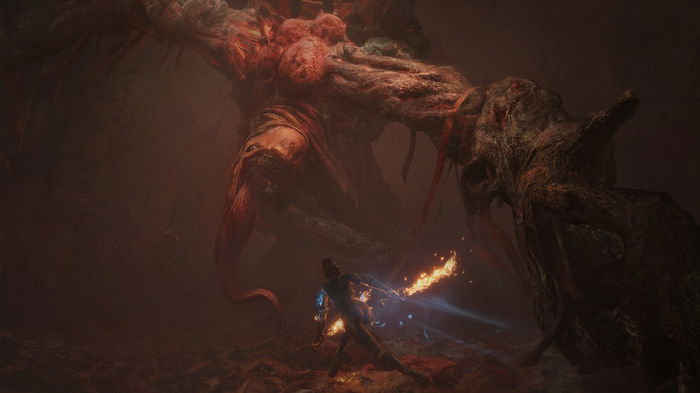
Conclusion
WUCHANG: Fallen Feathers is something rare in gaming, being an indie Soulslike game with a high technical and artistic standard and presenting to the Western world a new narrative and aesthetic perspective. Its use of Chinese mythology, Eastern philosophy, and supernatural horror offers a unique experience that's reflective and brutal, delicate and grotesque at the same time.
The combat is sharp, the protagonist is mysterious and empathetic, and the world is a labyrinth of dark beauty and ancient pain. Yes, the game has technical flaws and moments of imbalance, but these are overcome by the evident passion that holds the project up.










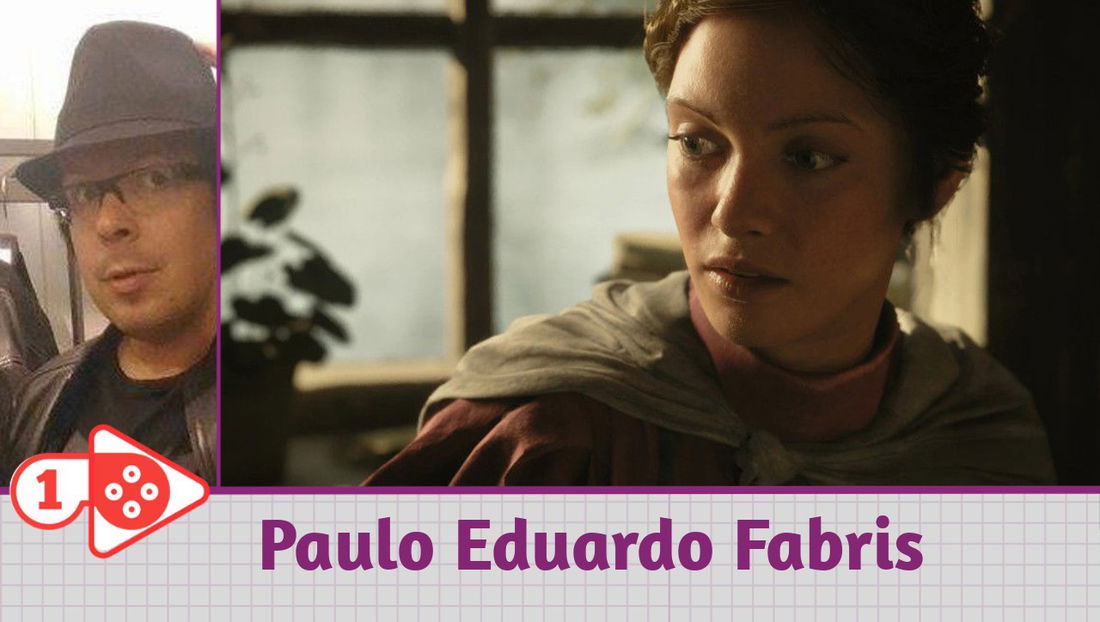



— Comments 0
, Reactions 1
Be the first to comment